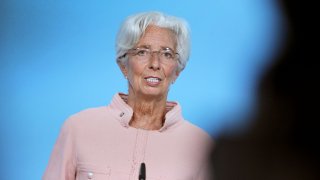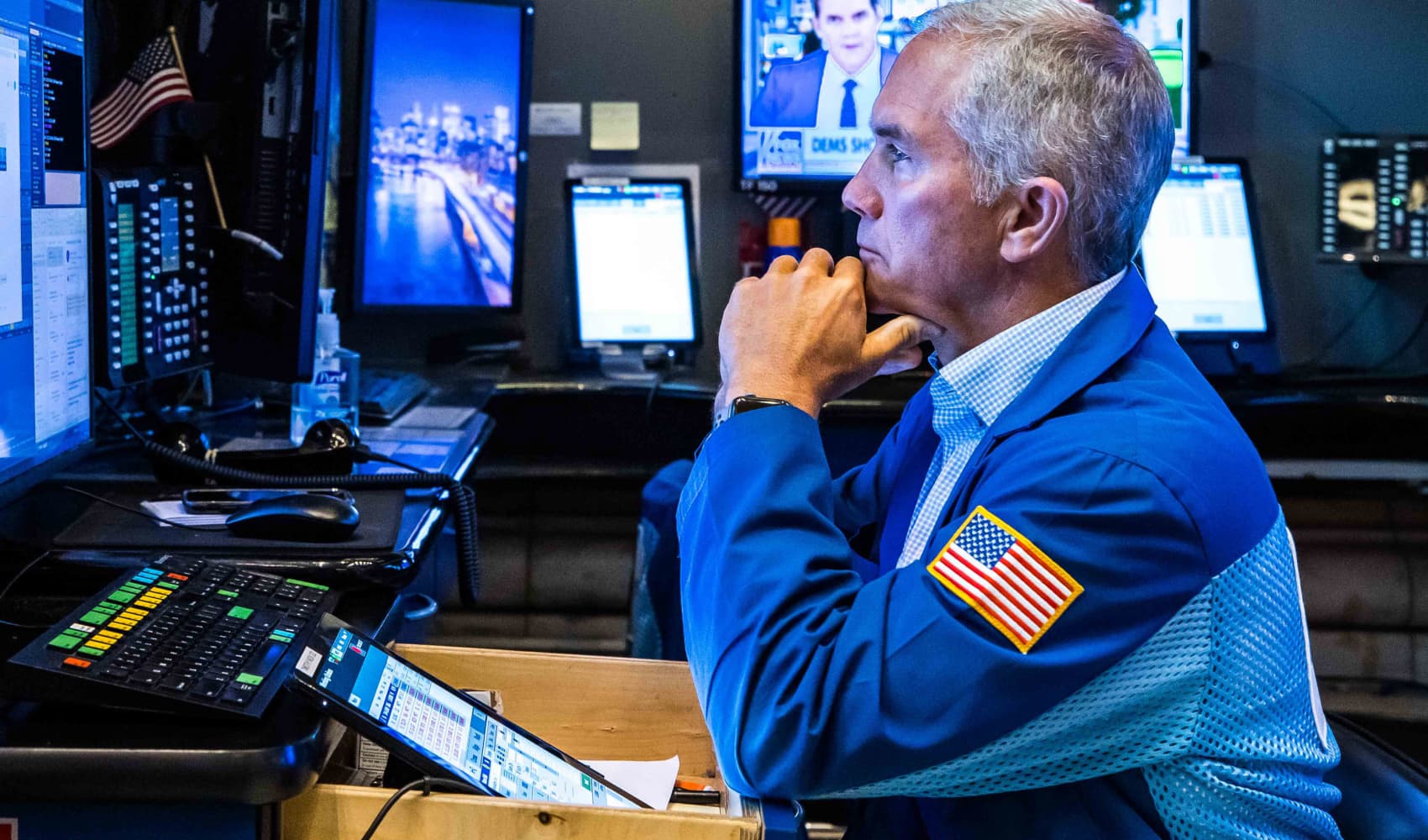
- Lagarde was speaking to the Frankfurt European Banking Congress on Friday, when she warned that the ECB "must not rush into a premature tightening" of monetary policy.
- The euro fell following Lagarde's comments, dropping to $1.1301 against the dollar.
European Central Bank President Christine Lagarde reiterated on Friday that the "conditions to raise rates are very unlikely to be satisfied next year."
Lagarde was speaking to the Frankfurt European Banking Congress, where she warned that the ECB "must not rush into a premature tightening" of monetary policy.
The euro fell following Lagarde's comments, dropping to $1.1301 against the dollar. Banking stocks also dipped by around 2%. The resurgence in Covid cases in Europe also weighed on investor sentiment on Friday morning, with Austria announcing it would impose a fourth national lockdown on Monday.
Get Connecticut local news, weather forecasts and entertainment stories to your inbox. Sign up for NBC Connecticut newsletters.
Lagarde had already sought to cool expectations of an interest rate hike next year, following the ECB's October policy meeting.
In her speech Friday, Lagarde said that high inflation rates were likely to rise further until the end of the year. On Wednesday, it was confirmed that euro zone inflation had hit 4.1% year-on-year in October, which was more than double the ECB's target.
Lagarde said that this inflationary pressure was "unwelcome and painful."
Money Report
The central bank announced in September it would be buying fewer bonds off the back of surging consumer prices. This began the process of slowly winding down its huge pandemic-era stimulus package.
Lagarde made it clear in September that the central bank's actions were a recalibration, but not a tapering. At the time, some market participants believed the ECB was underestimating inflationary pressures and would therefore likely have to announce a rate hike before the start of 2023.
Inflation
On Friday, Lagarde said that while the ECB was taking concerns about rising inflation seriously, she argued that the drivers of these pricing pressures were likely to "fade over the medium term, which is the horizon that matters for monetary policy."
Lagarde explained that because inflation stemmed from supply side issues and a surge in energy prices, it would "probably slow the pace of the recovery in the near term."
She said that in order for inflation to return to the ECB's 2% target, the central bank needed to be "persistent" in its monetary policy.
She said that the ECB remained confident that pricing pressures would ease over time because it did not see the "conditions in place, either at the economy-wide level, or at the sectoral level, for inflation rates above our target to become self-sustained."
For instance, Lagarde explained that while the ECB had noted strong "catch-up demand" in the euro area, it was not seeing "excess demand."
In terms of energy prices, she said that while they were likely to remain elevated over the coming months, they were likely to stabilize over the course of 2022. For example, she pointed out that gas prices had already fallen by around 21% since the record highs seen in October.
Due to this mixture of drivers behind inflation, Lagarde said that "tightening policy prematurely would only make this squeeze on household incomes worse."
She said that tightening would not address the "root causes of inflation because energy prices are set globally and supply bottlenecks can not be remedied by the ECB's monetary policy."






